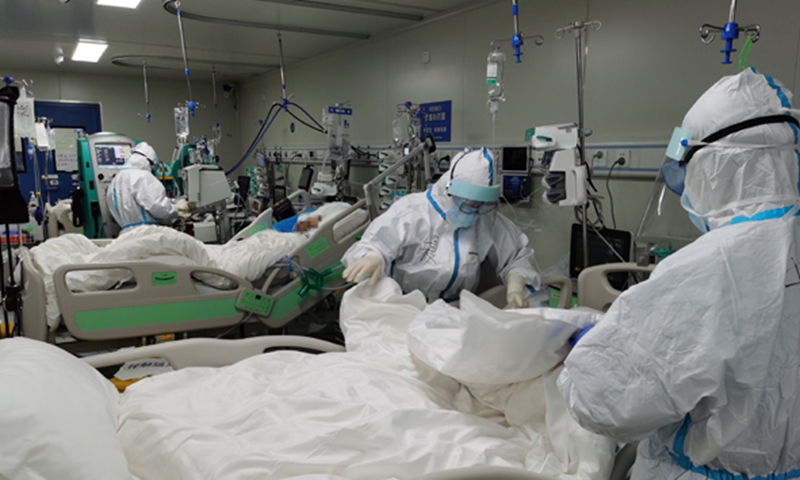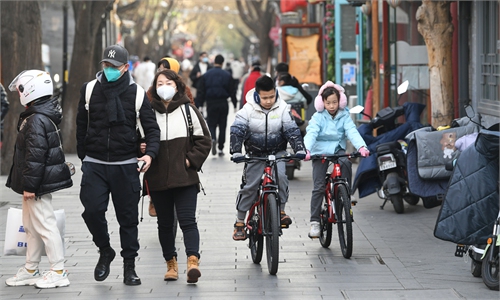Chinese rural areas urged to upgrade ICUs and open fever clinics by December amid Omicron waves

ICU Photo: Xinhua
China's top COVID epidemic control group released a working announcement to boost the medical supplies in rural areas by demanding qualified clinics in counties and villages to open fever clinics and operate those clinics 24 hours a day by the end of December as part of the country's efforts in optimizing tiered medical services in preparation for the waves of infection.
Top hospitals in each province should help those in the province's rural areas improve rural areas' ability to cope with the surge in COVID-19 cases, according to the announcement released by the Joint Prevention and Control Mechanism of the State Council on Sunday. The measures include sending medical workers to rural hospitals, and setting up remote networking to assist doctors in counties and villages.
The announcement also laid out a series of targets that rural hospitals should achieve by the end of December including accelerating the construction and upgrade of ICU units to ensure that the number of ICU designated for those infected with severe symptoms will be no less than 4 percent of the overall open beds.
Rural areas should staff one doctor and 2.5 to 3 nurses per ICU bed, and add 20 or 30 percent of total medical workers as back-up resources. It also asked 90 percent of village and township hospitals to establish fever clinics by the end of March, 2023.
Hospitals nationwide are striving to shore up their preparedness for possible exit waves. Nationwide, the outbreak will also peak within one month, and it will take three to six months for China to weather this wave of outbreak, Zhang Wenhong, head of the infectious disease department at Huashan Hospital in Shanghai, who is also director of the National Center for Infectious Diseases, was quoted as saying in media reports.
Rural areas are widely considered as vulnerable parts as those places usually lack of adequate medical resources, struggling in dealing with the resurgence of infections. Particularly, a large-scale transmission during the upcoming Spring Festival travel rush in January is likely to lead a surge of infections in rural areas that lack of protection.
The announcement also asked to enhance the training of medical staff including enhancing the coordination of rural medical staff and expand the medical teams, sending professional doctors and infection management personnel such as respiratory, infection, traditional Chinese medicine to rural health centers to conduct outpatient visit and guidance while strengthening remote guidance.
In preparing for stock of medicines, all localities should increase supply guarantees to ensure that grass-roots medical and health institutions, dynamically stock Chinese traditional medicines, antipyretic and cough-relieving drugs, and antigen detection reagents at the rate of 15-20 percent of the total serving population, read the announcement.



